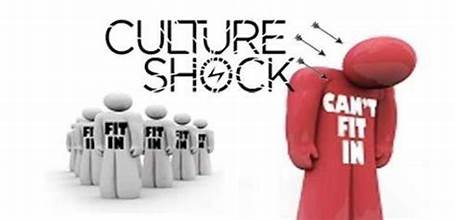페이지 정보
본문
Adjusting Abroad: Mental Health and Culture Shock in Korea

Recorded by Bonu
2025.08.03
Script
Hi everyone, and welcome to the KECND Podcast—where we talk about real issues affecting foreign residents in Korea. I’m Bonu, and in today’s episode, we’re diving into something that’s often felt but rarely talked about: culture shock and its impact on mental health. Let’s be honest—living in Korea can be an amazing experience. Whether you're here to study, work, or chase your dreams, the energy is high and the culture is rich. But underneath the excitement, there can be stress, confusion, and emotional ups and downs that no one really prepares you for. What is Culture Shock? Culture shock is more than missing home. It’s that feeling of being constantly off-balance. Suddenly, small things become big challenges—like how to throw away trash, how to greet people properly, or even how to ask for directions. You might feel really excited at first—the “honeymoon phase.” But then it hits: frustration, loneliness, confusion. Some people start to question themselves: “Why am I feeling like this? Am I not strong enough?” But the truth is—this is completely normal. You are not failing. You’re adjusting. Mental Health Matters, Even in Transition In fact, culture shock can impact your mental health more than you realize. You might feel tired, lose interest in things, sleep too much—or not at all. For some, it can trigger anxiety or depression, especially if you’re already far from family or trying to cope in a second language. And here’s the hardest part: we often don’t talk about it. In many cultures—including Korean—mental health is still not discussed openly. So as a foreigner, you may not know where to go, who to ask, or even what words to use. Three Ways to Cope & Care for Yourself So here are three ways to support your mental well-being while living in Korea: 1. Build Small Connections You don’t need a big social circle to feel less alone. One classmate. One coworker. One friendly barista. Joining expat groups, language exchanges, or even volunteering can help you feel part of something. Community is healing—even if it’s small. 2. Let Yourself Feel Everything Culture shock isn’t something you “fix.” It’s something you experience. Let yourself feel it—frustration, sadness, joy, confusion—it’s all part of growing. Give yourself breaks, take a walk, find small routines that feel familiar. Your feelings are real, and they deserve space. 3. Reach Out for Help Yes—it’s okay to get help. Many universities offer free or affordable counseling in English. Some cities have foreigner support centers with mental health resources. Apps like “Korean Counseling Center” or “Seoul Global Center” can guide you in English, too. Talking to someone doesn't mean you're weak. It means you're strong enough to take care of yourself. You're Not Alone If you're struggling, remember this: thousands of people have felt what you’re feeling. You are not strange. You are not broken. You’re human. You’re adapting to a new world, and that takes time. And at KECND, we believe in protecting the health and welfare of foreign residents—not just in physical emergencies, but in emotional ones too. So, wherever you are right now—in your dorm, at a café, on a walk—I hope you take a breath and remind yourself: you’re doing better than you think. Thanks for spending this moment with me. If you found this helpful, feel free to share it with a friend who might need it, too. Until next time, stay safe, stay grounded, and take care of your mind.
첨부파일
-
Podcast.mp3 (1.8M)
0회 다운로드 | DATE : 2025-08-03 23:52:06
